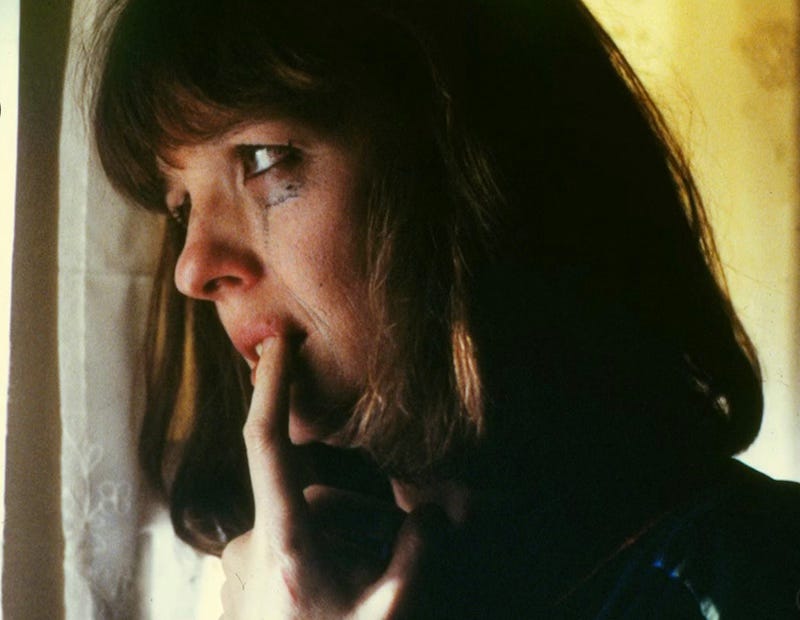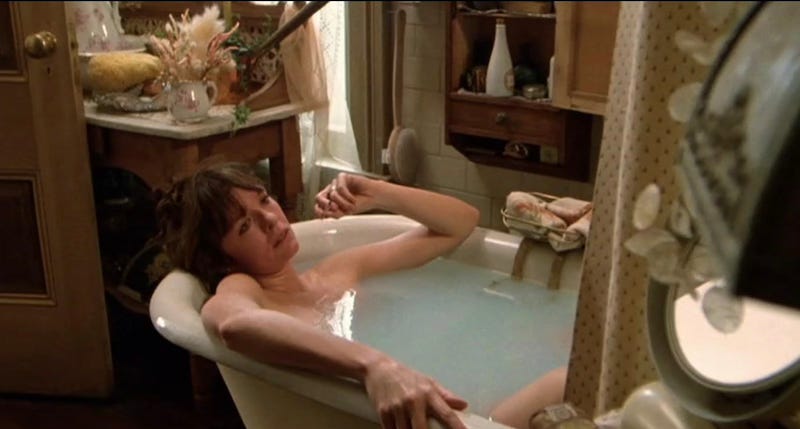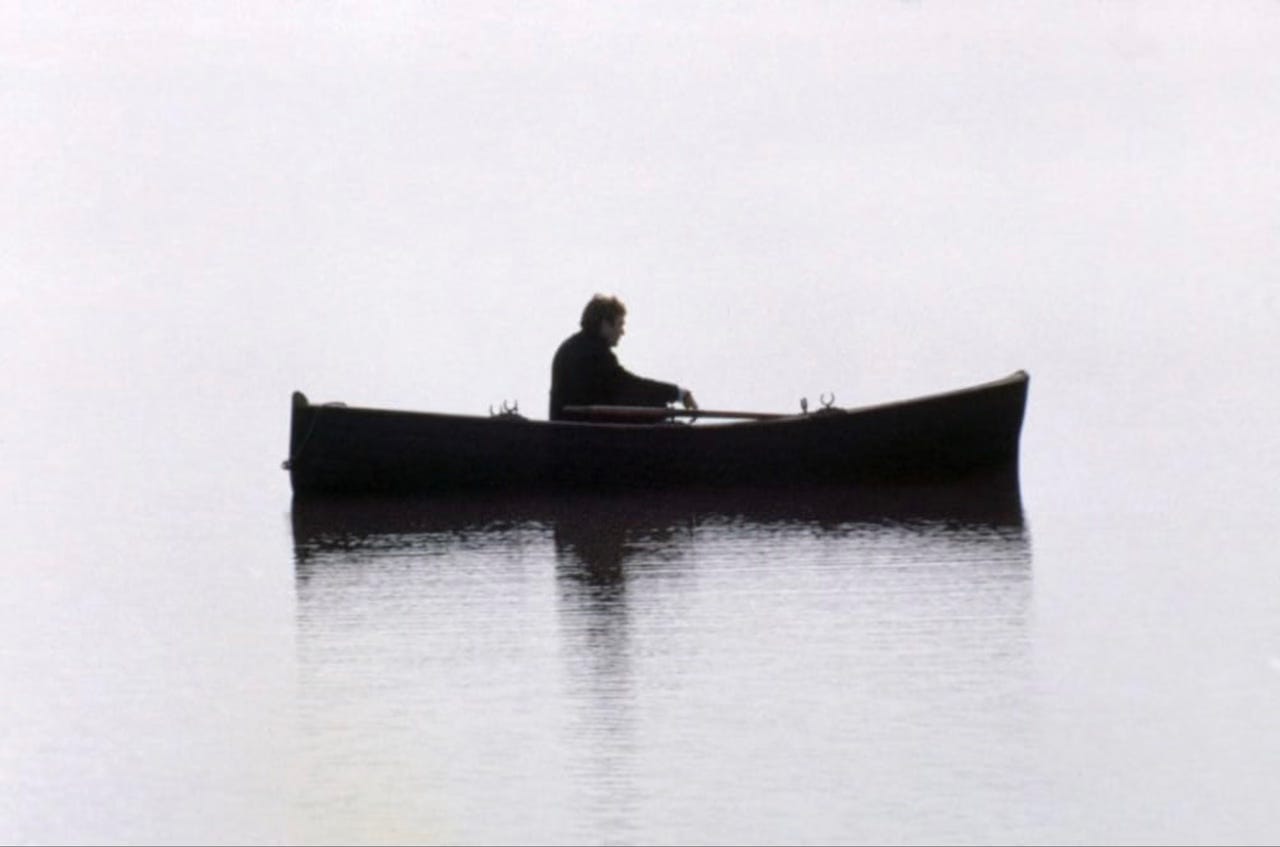Strangers Are Easy
When my parents split up in the early ’80s, I became obsessed with divorce movies
My mother told my sister, brother and me that she and my father were splitting up on a spring night in 1981, a few months before my tenth birthday. We’d just dropped him off at a commuter train station in Westchester, Dad returning to Manhattan, where he’d never wanted to leave in the first place. We were driving up route 129 in our scrubby brown Dodge Duster, the Croton Dam to our right. The radio was not on. Sam and Ben started to cry in the back seat. Mom looked at them in the rearview mirror and then over at me in the passenger seat.
“It’s alright,” she said, “to cry.”
She was crying now, too but I did not. I placed my hand over hers, resting on the gear shift, and told her not to worry. I would take care of her.
I’d seen a segment about divorce on the Sunday morning TV show Kids Are People too, and felt prepared. I fixated on movies about divorce. I’d missed the biggest break-up movie of the time, Kramer vs. Kramer, though I’d heard about it. This in the early days of cable and VCRs were if you missed a movie in the theater, it could be years before you had the chance to see it.
Going to the movies didn’t happen regularly—someone had to drive you there and pick you up. We were allowed to watch one hour of TV each day; movies were an event. The previous summer, I couldn’t get enough of The Empire Strikes Back, the first movie I saw more than twice in a theater. I’d begged and pleaded to see it again and by summer’s end, watched it seven times on the big screen. Luke and Vader, son and father? Han, frozen. It was all too much, and I funneled my real-life anxieties plus my yearning for escape in this cinematic fantasy.
In 1982, I saw three break-up movies: Author! Author!, an Al Pacino comedy about a single man raising a group of kids; Best Friends, a lame melodrama with Burt Reynolds and Goldie Hawn; and Shoot the Moon, a somber divorce movie with Albert Finney and Diane Keaton. The first two were lousy, though I had affection for Author! Author!— the light comradery and easy humor provided by his gang of kids.
Shoot the Moon proved something else entirely.
I wasn’t supposed to see it. It was rated R, a movie for grown ups, not children. I’m not sure how I convinced my cousin, twenty years my senior, to take me, but she did, to an evening showing at Loew’s 83rd Street. I felt as if I’d gotten away with something. Later, my uncle scolded my cousin: “Why the hell did you take him to see that?”
A mournful piano tune plays over the title credits, like someone practicing alone. Set in a green and gauzy-looking Marin county, Shoot the Moon is about a couple breaking up after fifteen years of marriage—exactly how long my parents had been together. They have four girls and I see myself in Sherry, the eldest, played by Dana Hill.
Albert Finney stars as George, a writer, who, unlike my father, was a professional success. Like my dad, he’s smart, troubled, and frightening.
Faith is played by Diane Keaton. She looks sad and tired—drawn—like my mother did at the time. She’s still beautiful with an improvisational sense of style—when Faith dresses for an awards ceremony, something is missing; she grabs her daughter’s Jimmy Crocket belt, which seems ludicrous, but it makes the outfit, and later she receives compliments on it.
As the movie opens, Faith is so furious with George she can barely talk to him.
This is how my mother best expressed anger, too. Silently.
Faith is doing the morning dishes when she tells George she knows he’s having an affair. Then she doesn’t say anything, and that makes him so furious that he smashes a plate on the floor. Then she smashes one too and another one, and it reminded me of an argument I overheard my parents having one morning. I was outside playing when I stopped at the sound of her yelling. It was something I’d never heard, not like this. After a pause I heard the sound of breaking glass. That I believed. She was smashing things in anger.
In the aftermath of violence, Faith is quiet again. It looks as if she’s been beaten up, as she pick ups the pieces of plate on the floor. George packs a bag and leaves her sobbing to herself in the kitchen.
George’s new woman is played by Karen Allen, Indiana Jones’ partner in Raiders of the Lost Ark. She tells George, “I don’t like being alone. I like you, I love you and if you don’t come through I’ll find somebody else.”
The movie, I learned, wasn’t just about a divorce—will they make it or not—but what happens next. How will they start new relationships while bound by the children, the house, their history.
Faith stays in bed for days after George leaves. Sherry makes breakfast for her sisters and tries to keep them in line. The younger girls giggle under the sheets in a hotel room when their dad’s girlfriend tells them that having sex with their father is like eating ice cream.
I recognized parts of my life on screen. The setting might be different but the emotional tenor the same. Faith’s hairbrush is just like one my mother had. Faith sits in a bathtub smoking a joint and signs an old Beatles song, one that Mom loved, and the girls sing the lyrics to “Fame” in the car, just like my sister. (Mom had gone to a midnight showing of Fame in Times Square, and how I envied that.)
Sherry is pissed at her dad and refuses to talk to him for a long time, which in turn makes him so mad that when he comes to the house to give her a birthday present, he throws a tantrum, locking Faith out of the house, and sprints upstairs to spank his eldest daughter.
When it’s over, he leaves, holding the portable typewriter he was going to give Sherry as a gift. He’d parked way down at the end of the long driveway. He walks down the front steps and then runs, fast, into the darkness. Finney resembled my father, built heavy around his shoulders and arms with thin legs. I don’t ever remember seeing my father run in his life and the thought of it now made me want to cry.
Sitting next to my cousin in the movie theater, I wished I could give my dad a hug.
Faith starts to see Frank, played by Peter Weller, who she’s contracted to build a tennis court in the grove next to the house. He’s handsome, no intellectual, but a nice guy and he likes her.
One night, with the girls with their father, Frank stays for dinner. Afterwards, she gives him a brandy with his coffee and one of George’s cigars. They sit in the living room and she plays “Play with Fire” by the Stones on the stereo. Her tension is palpable as she explains that she hasn’t been with a man other than George in many years.
I watched like this is a blueprint for what was happening with Mom, worried about who she’ll meet next if it isn’t going to be Dad. Worrying about what that’ll do to my father, knowing how hung up on her he was.
My father knew a great many things but at ten and a half years old, I knew something he didn’t—Mom was done.
When Faith’s father dies, George attends the funeral. George loved her father, too. The family stays in a hotel, and that night after the service, George is eating alone at a restaurant when Faith joins him. Soon they are arguing. They’re so loud they get into a fight with the couple sitting next to them, and you have to laugh, it’s all slightly ridiculous.
After calming down, Faith and George get drunk, then retire to Faith’s room and sleep together. Does this kind of thing really happen? Will it happen to my parents?
When they are finished, the room almost dark, he looks content. She’s concerned.
“You made me feel loved when I was a girl. You helped me grow into a woman,” she says, and I think of how much my father loved Henry Higgins and My Fair Lady.
She smiles and says, “Just now, for a minute there, I don’t know. You made me laugh, George.” Her smile goes away. “You were kind,” she says, nodding.
“Yes, you’re right,” he says. “I’m not kind anymore.”
“No. Me either,” she says.
“You’re kind to strangers.”
“Yeah. Strangers are easy.”
Sherry opens the door, sees her parents in bed, and after collecting herself reports that her sister threw up an éclair.
By the time Frank finishes building the tennis court he and Faith are seeing each other. They hold a party at night on the court to celebrate with his friends. Sherry has a crush on Frank and gets jealous when he dances with Faith. They invite her to join them, which she does. But she can’t help herself and says to her mother, “You fucked Frank last week and you fucked Daddy this week, who are you going to fuck next week?”
Faith slaps her across the face and Sherry runs off into the woods. The next thing, she shows up at George’s new house, a bit of movie logic, where she has a rapprochement with her father. They sit on a pier by the ocean and he gives her the typewriter.
She asks him questions about what life was going to be like now. He’s calm and tells her he doesn’t know. Reassuring and soft in a way my father could be. Then he drives her home.
The party is still jamming, a familiar Bob Seger song on the stereo. George is polite to Frank and says that the court, which he was against, looks nice. Frank offers him some wine and Faith asks him to stay. Maybe George and his new girlfriend could come over to play tennis. She smiles and says, “We have to be grown up about it.” George smiles back but he’s distracted, as if he’s already decided something.
He says goodnight, then goes to his car. He sits for a moment, then backs up and races the car around the side of the house, knocking into other parked cars, and rams straight into a vehicle and pushes it to the tennis court. Everyone scrambles as George runs over the gazebo, tearing down the fence and the lights. When he’s finished, the car is covered with sections of the fence.
Shoot the Moon didn’t just feel grown-up, it felt true. It also alerted me to the difference between movies—even “tough” downbeat ones like this—and real life.
Frank calls him a coward, and tosses the junk off the top of the car. He pulls George out and beats him. The girls scream for Frank to stop and when he does, George is on the ground, face covered in blood. Frank looks over to Faith and calls her name; she doesn’t move to him and after a moment, he walks away.
The girls hover over George, softly calling, “Daddy.” Faith moves to him, a bright white light in the background, her ex-husband, having destroyed everything again, on the ground, surrounded by their children. He lifts his left arm and opens his hand and in a weak voice says, “Faith?”
The image freezes and the movie is over. I’ve never experienced a freeze-frame end to a movie and it will take a long while to erase the power of the final image and all it implies.
Will she take him back? Maybe, possibly, a hope? The Empire Strikes Back left me in emotional turmoil but this was my first experience being challenged by a movie.
There was no telling what would happen to George and Faith and their kids. The only certainty was the whole thing was a painful mess.
At least George has his career and his girlfriend to soothe his ego; my father had no mistress, no career, no money, and was faced with losing his greatest accomplishment—courting and marrying Mom in the first place. Having three children together. His youthful promise, vigor, and all his dreams now spoiled.
My cousin and I walked up Broadway and talked around what we’d just seen. I wanted a Coke but it was too cold and too late. I suddenly felt very tired.
Shoot the Moon didn’t just feel grown-up, it felt true. It also alerted me to the difference between movies—even “tough” downbeat ones like this—and real life: I knew my mother would leave my father there on the tennis court in the mess of his own making. She would never take my father back. And she didn’t.
Postscript: Shoot the Moon got great reviews but didn’t do much at the box office. Director Alan Parker has a thoughtful and detailed account of the making of Shoot the Moon over at his website—an excellent read.
Also pleased to report that after their divorce, both of my parents re-married. Dad, twice, to the same woman, who is terrific (he passed away in 2007). And Mom’s been married to her second husband, a loving guy, for 39 years, more than twice as long as she and my father were together. Proof that there’s happiness after divorce.





Touching, to be sure, but also bearing the tough-minded wisdom that comes with surviving such ruptures in the family fabric. In its love for movies and how they guide and heal us it made me miss the studio system that could and would support this kind of compassionate learning. And it's all so well said, a voice in one's ear.
This is a book, Alex, ya know that, right?